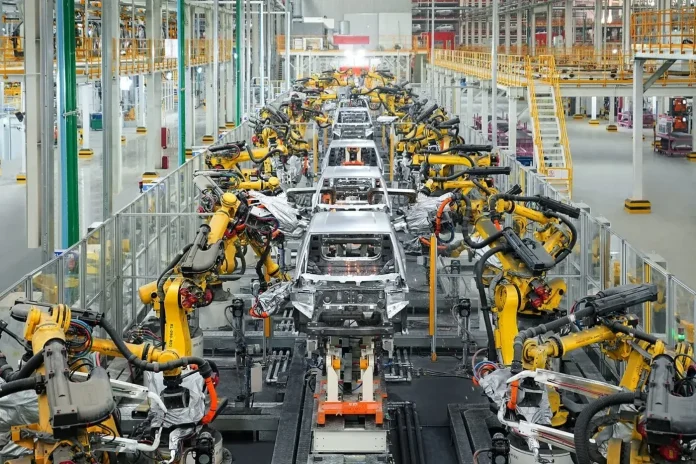In 2024, trade tensions between China and the EU have intensified. On April 10th, the European Commission updated its report on distortive economic practices in China, expanding to include new industries such as telecommunications equipment, semiconductors, railways, renewable energy, and electric vehicles.
According to a report from Commercial Times, despite strong protests from China, the updated report from the European Union indicates that EU manufacturers may have filed anti-dumping complaints against Chinese chip and clean technology producers.
The Hong Kong Economic Journal (HKEJ) reported on April 11 that the latest updated version of the EU report, namely ‘COMMISSION STAFF WORKING DOCUMENT ON SIGNIFICANT DISTORTIONS IN THE ECONOMY OF THE PEOPLE’S REPUBLIC OF CHINA FOR THE PURPOSES OF TRADE DEFENCE INVESTIGATIONS‘, spans 712 pages. In addition to retaining industries like steel, aluminum, chemicals, and ceramics from the initial 2017 report, it has expanded to cover various new areas.
These include the role of the Chinese government in planning economic objectives, the importance of state-owned enterprises, special treatment in land, labor, raw materials, and energy for specific industries, and state subsidies, alleging distortive practices.
Previously, the EU’s new regulation on “Foreign Subsidies” came into effect in July 2023, followed by an announcement in October of the same year to initiate an anti-dumping investigation into Chinese electric vehicles. In response, China launched an anti-dumping investigation in January this year on distilled brandy containers of 200 liters or less originating from the EU.
Subsequently, the EU took action against Chinese company CRRC, prompting its withdrawal from public procurement tenders in Bulgaria. Recently, the EU escalated by announcing an investigation into Chinese-made wind turbines.
Despite escalating tensions in China-EU trade relations, when Chinese Minister of Commerce Wang Wentao visited Europe on April 7th, one of his main tasks was said to stabilize China-EU relations, maintain dialogue on trade disputes, and pave the way for Chinese President Xi Jinping’s planned visit to France in early May.
During Wang Wentao’s visit, he denied that Chinese automakers gain a competitive advantage through massive subsidies and emphasized that the anti-dumping investigation into EU brandy launched in January is unrelated to the electric vehicle dispute.
However, on April 10th, officials from China’s Ministry of Commerce Trade Remedy Bureau expressed a firm stance during a meeting with Lucais, Director of Trade Defence at the European Commission in Brussels. China stated that the updated report distorts China’s policies, market environment, and economic system, providing grounds for discriminatory anti-dumping measures. China expressed strong concern and opposition to this.
On the other hand, German Chancellor Olaf Scholz is set to lead a delegation to China on April 13th, with top executives from German companies such as BMW and Mercedes-Benz accompanying him.
According to a recent Reuters report, despite a nearly one-fifth decline in imports from China between 2022 and 2023, Germany maintains a high dependency on China for categories like chemicals, computers and solar cells. The “clear structural de-risking” is reportedly yet evident.

